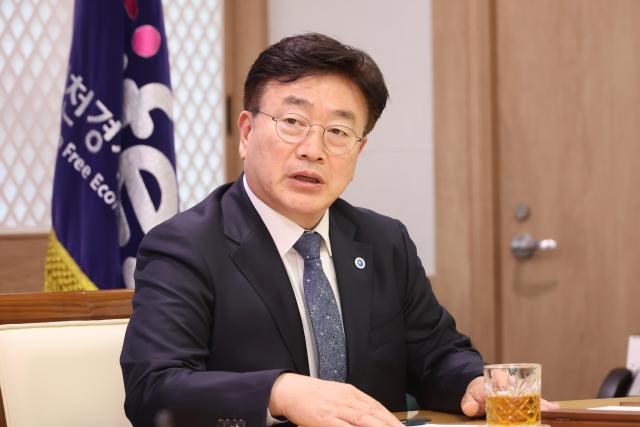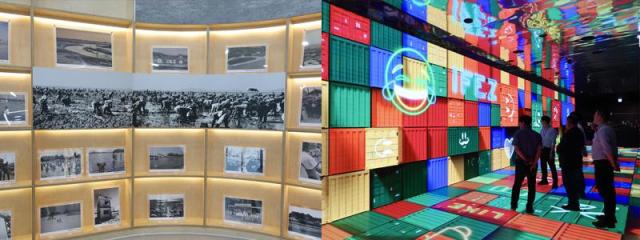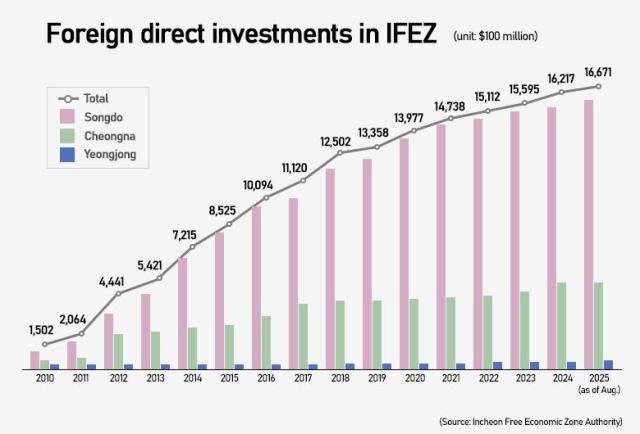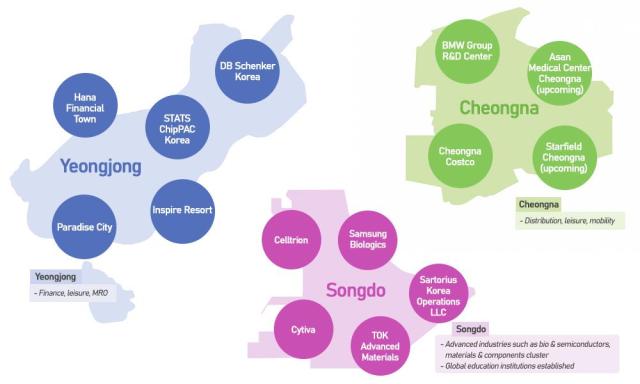
SEOUL, October 01 (AJP) - Brain power defines the AI era, and the possibility of a brain drain in Silicon Valley from the U.S. imposition of hefty fees on skilled-worker visas offers an "enormous" opportunity for South Korea, said the nation’s foreign direct investment (FDI) czar.
"This is a windfall, and we must move fast in hosting roadshows to draw global brains here," said Incheon Free Economic Zone (IFEZ) Commissioner Yun Won-sok in an exclusive interview with AJP at the landmark 31st-floor headquarters in Songdo.
Since its establishment in 2003, IFEZ — spanning Songdo, Cheongna, and Yeongjong districts near Incheon International Airport — has been tasked with attracting FDI. Over two decades, it has secured more than $10 billion in investment, anchored by biotech, logistics, and finance. But with nearly all available space filled, growth has slowed.
That reality, Yun argued, demands a paradigm shift. Instead of focusing solely on hard capital, IFEZ must pivot toward drawing high-value people — scientists, engineers, and creators — who can turn Incheon into a magnet for ideas and innovation.
"Bringing here those who worked with CEO Mark Zuckerberg can now be more valuable in the long run than hosting Meta outposts," he said.
The timing is favorable. Washington recently announced a $100,000 fee for new H-1B visas, a major pathway for foreign professionals. Nearly two-thirds of such visas go to computer-related occupations, mostly in California, with Indians making up 71 percent of approvals and Chinese 12 percent last year.

IFEZ, Yun stressed, is well-positioned as a Silicon Valley alternative. "Who can better pose as the brain hub in Asia-Pacific?" he asked, pointing to five key strengths: a robust bioengineering ecosystem, a global-standard education system, strong R&D commercialization between universities and companies, world-class logistics and transport infrastructure, and globally popular content and lifestyle offerings.
What IFEZ seeks, he explained, is not a simple investment but a virtuous cycle powered by human capital. "If seasoned and budding scientists and IT talents come here, continue their research, and launch businesses, their activities will naturally feed investment and hiring."

Korea, he noted, can no longer rely on foreign direct — let alone greenfield — investment because of land and labor constraints. "If our land resources are limited, then our advantage must come from the people and technologies we can attract. High-value jobs, advanced R&D centers, startups that commercialize ideas — that is where Incheon will stand out."
Biotech has been the anchor of this pivot. Songdo now hosts one of the world’s largest biomanufacturing clusters, with Samsung Biologics producing more than 600,000 liters of biologic drugs annually. "From those anchors, suppliers and partners have clustered in Songdo. Now we must move further up the value chain into new drug development, AI-based healthcare, and quantum-assisted research. That requires bringing in the best minds from overseas," Yun said.
Education is central. "Foreign executives and researchers will not relocate if their families cannot," he said. "That is why we built Incheon Global Campus with five overseas universities, and why we are expanding K-12 international schools in Songdo, Cheongna, and Yeongjong. Parents need to know their children will receive the same standard of education they had back home." The campus hosts institutions such as Stony Brook University, George Mason University, and SUNY Korea, offering English-language degree programs in South Korea.
IFEZ is also negotiating with leading institutions abroad. "We are discussing joint R&D hubs with Georgia Tech, MIT, Johns Hopkins, and Fraunhofer in Germany," Yun said. "The goal is to place companies, labs, and universities side by side. That is how you accelerate innovation — by bringing people, capital, and ideas under one roof."

Lifestyle, he added, is another pillar. "Cheongna can become a media and content hub, an Asian Hollywood. We are preparing legal amendments so that major studios can invest and film here. Incheon has the airport, the logistics, and the consumer base. Content, tourism, and high-end services will be the next growth axis." Cheongna has already been earmarked for tourism and leisure development, including a large K-pop arena and entertainment complexes.
The ultimate test, Yun said, will be whether people choose to come. "Our goal is to make IFEZ a place where global researchers, entrepreneurs, and creators want to live and work." And for Korea, he added, the stakes could not be higher: "In the AI era, countries that win the talent race will win the future. Incheon must be at the front of that race."
Copyright ⓒ Aju Press All rights reserved.


![[영문] IFEZ Takes One Step Closer to Be the Worlds Best Business Hub](https://image.ajunews.com/images/site/img/ajunews/list_noimg.jpg)
![[영문] IFEZ Creates New Growth Power Based on Distribution](https://image.ajunews.com/content/image/2009/01/12/200901122251343170491-2-99829.jpg)
![[영문] IFEZ to Overcome Challenges Ahead of Korean Economy](https://image.ajunews.com/content/image/2009/03/17/200903172358041130765-2-105860.jpg)